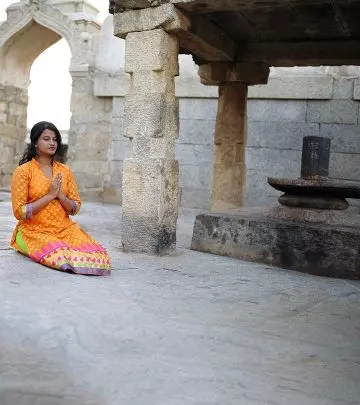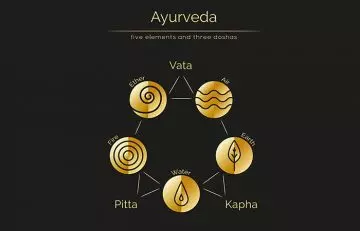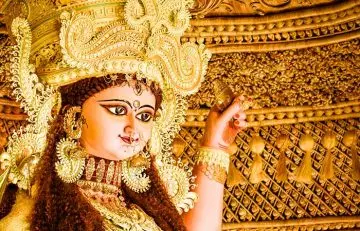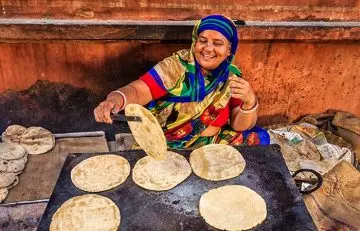Unearthing Menstrual Wisdom – Why We Don’t Go To The Temple, And Other Practices

Image: iStock
Menstrual hygiene is of utmost importance for women. And why wouldn’t it be? Keeping one’s nether regions healthy and clean keeps a lot of diseases at bay. In fact, to spread the importance of menstrual hygiene among women, May 28th has been declared as “World Menstrual Hygiene Day.”
However, that’s not what I am trying to talk about here. I’m here to talk about the menstrual wisdom of our country, India. I’ve often seen Women NGOs, women welfare organizations organize campaigns about how menstrual wisdom needs to be practiced. I can see protests and educational camps being held by the women, for the women, in order to dismiss all those superstitious beliefs that we womenfolk are used to believing in while practicing menstrual wisdom. Many say that the age-old practices of menstrual wisdom have been conceptualized with the idea of suppressing women. But I disagree.
Most of us try to scientifically prove or disprove the menstrual practices or customs that Indians, especially the ones living in rural area, follow. I tried to do some research on my own about such practices. I didn’t try to find out the science behind such practices but rather focused on understanding the spirit behind it. However, this search did lead me to science, but a different form of science.
Explaining The Core Of Menstrual Practices
We’ve known about the practice of prohibiting women from entering temples and other holy places while on their periodic cycle, don’t we? We think that every culture has its share of menstrual taboos that they follow. However, if we closely observe, all these practices point to one single source of origin, the science of ancient India which includes — Ayurveda, Meditation, Yoga, Astrology, and Mantra. If you read ancient Vedic books, you’ll understand that the Vedic seers believed that everything that moves around us constitutes “energy.” Similarly, the science of Ayurveda is based on the principles of doshas (bio-energies) which are Vata (elements of air), Pitta (elements of fire), and Kapha (elements of water).
It is these bio-energies that help the human body perform its physiological functions. And Ayurveda considers menstruation as a boon for women since it is a natural way of their body to cleanse itself of their doshas on a monthly basis, which in turn, helps them achieve longevity in life. During menstruation, a woman’s energy is flowing downwards. And any disruption that occurs during this downward energy flow becomes a hindrance. And this is the theory that forms the foundation of most of the menstrual practices followed in India.
Women Not Being Allowed To Enter Temples Or Attend Religious Functions
Women are often asked to not attend religious celebrations or enter temples while on their periods. The assumed reason behind it is that people consider menstruating women to be impure. What’s the actual spirit behind it? Let me explain. In the words of few gurus whose preachings I came across on the Internet, the energy that a woman experiences during menstruation is going downwards, while the energy that we accrue from a pooja or any holy ritual is goes upwards.
Also, certain priests say that there is nothing impure about a menstruating woman. In fact, in India, the numbers of goddesses worshipped outnumber the number of gods worshipped worldwide. A woman who is menstruating is considered to be as pure as a goddess, she is so full of pure energy. And if we allow her inside a temple, the energy of the goddess gets transferred to the menstruating woman which will make the idol of the goddess lifeless. Therefore, women are asked not to enter a temple. They are so pure that even the idol of the goddess is rendered lifeless. And we thought women aren’t allowed to enter because they are thought of as impure.
Women Are Not Allowed To Cook Or Eat With Others While Menstruating
Indians consider eating as a spiritual activity. This is why probably certain brahmins offer prayers before eating. And even monks read scriptures before eating food. They do this because while we eat, it is the lower chakras that are highly active. Chakras are nothing but energy columns located on our spine. The lower chakras help in performing bodily functions whereas the higher chakras are connected to the brain. Praying before eating is said to increase the positive energy of the food.
A menstruating woman is considered to be sensitive to negative energy. She will absorb almost all kinds of energies which will disrupt the peace of the soul and body. And if such a woman is allowed to eat with others, all the negative energy gets directed towards her. Therefore, women who are menstruating are asked to eat separately. And we thought that women are not allowed to eat with others because menstrual blood is considered to be toxic which can disrupt the purity of others’ food.
It’s In The Attitude Of The Woman
In India, menstrual practices are strongly influenced by various cultural practices. The core problem of menstrual wisdom lies with the woman herself, how she treats herself during her period cycle. She needs to consider herself as pure. She needs to take care of herself.
I’m neither supporting nor rebutting the age-old menstrual practices or traditions. All I’m trying to say is that none of it was intended to suppress women. We need to understand the ancient science’s relevance and incorporate it into our modern world. What are your views about this sensitive topic? Let us know in the comments below.
















